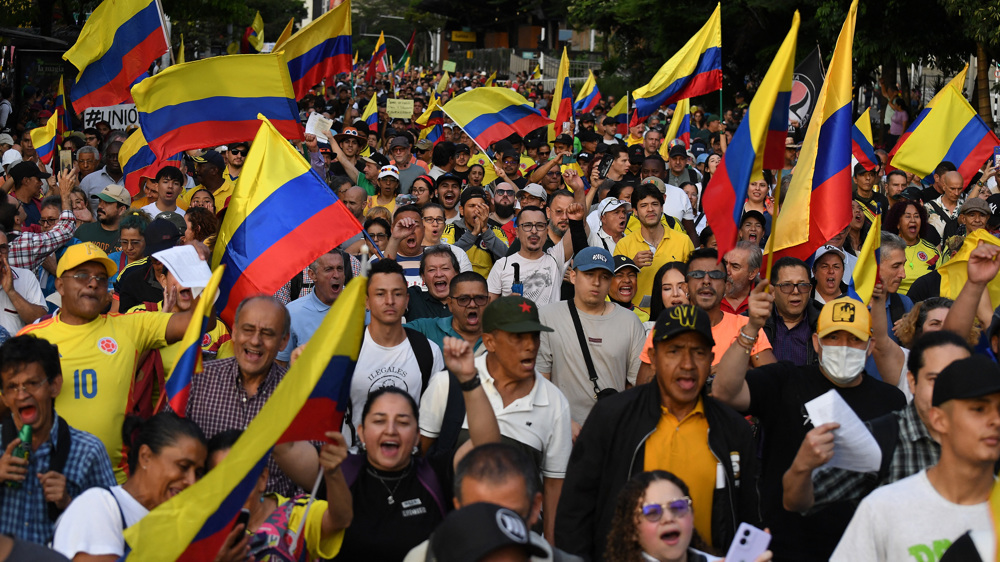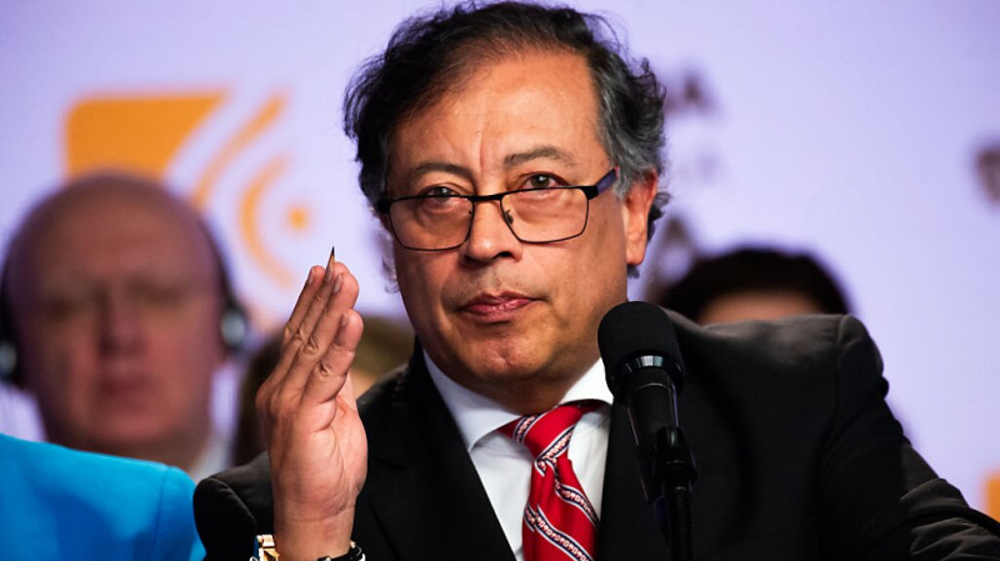Colombia gives free pardon to 110 FARC rebels
The Colombian government has pardoned 110 members of the Revolutionary Armed Forces of Colombia (FARC) group as part of a landmark deal between Bogota and the rebel group.
The country’s Minister of Justice and Law Jorge Londono made the announcement at a press conference on Wednesday, adding that some “300 pardons could be granted in all.”
According to the minister, all the pardons, along with an amnesty law currently before the Colombian Congress, only applies to “political crimes” and do not include more major offenses such as killings, rape and torture. All pardons must also be reviewed by a judge before taking effect, Londono further explained.
He said some 5,500 government troops, police officers, and other provincial agents, who are currently behind bars for the conflict-linked crimes, could also be discharged from prison providing that they had committed minor crimes.
Dismissed for rejecting peace
FARC currently has some 5,700 fighters under its command and some 4,500 of its members are also behind bars across Colombia.
On late Tuesday, the FARC leaders said in a statement that they had dismissed five of the group’s commanders for refusing to demobilize and join the peace process with Bogota.
“This decision is motivated by their recent conduct, which contradicts our political-military line. We call on all combatants who have been tricked into this futureless path to distance themselves from this mistaken decision taken by their commanders,” the statement further read.
It was the second time some FARC figures were engaging in dissent. Back in July, another commander along with a number of his fighters abandoned the group in protest at the peace deal, which will see the rebel group disarm and transform into a political faction.
Bogota is concerned that such rebel dissenters would continue the lucrative illegal business of coca-growing and cocaine-smuggling and has promised tough treatment.
“Those who declare themselves dissidents from the FARC, or who become bandits, are declared high-value targets for the armed forces,” Colombian Defense Minister Luis Carlos has warned.

Bogota and the FARC rebels first reached a deal to end their armed conflict on September 26. That deal, which had taken some four years to negotiate, was, however, rejected unexpectedly by a razor-thin margin in a referendum on October 2, with opponents saying that it was too lenient on the rebels.
The two sides then re-launched talks to modify the deal to the satisfaction of the opponents. A final version, a 310-page document, was signed on November 24 and won unanimous approval by both the Senate and the lower house of Congress in late November and early December, finally ending 52 years of deadly violence. It was not put to a referendum again.
Colombian President Juan Manuel Santos was awarded the 2016 Nobel Peace Prize for “his resolute efforts” to put an end to the civil war in country, which has claimed the lives of at least 260,000 people, left some 60,000 missing and displaced seven million others, according to official figures.
Iran pursues talks and deterrence simultaneously: Security chief
Peace with Israel ‘not possible’ amid ongoing violations of Palestinian rights: Top diplomat
Discover Iran: The network of rivers, lakes, and wetlands of Sistan and Baluchestan
Russia: West reviving Navalny case to divert attention from Epstein scandal
Iran has ‘real ideas’ in indirect talks with US, will not submit to pressures: FM
‘Netanyahu is deceiving you’: Anti-settlement organization warns Trump
VIDEO | France, Italy, Germany call for UN special rapporteur Albanese to resign for slamming Israeli genoci
VIDEO | Kashmir prepares for Ramadan as holy month approaches












 This makes it easy to access the Press TV website
This makes it easy to access the Press TV website